Get the FREE trial access to platform training for teachers!
For teachers and people interested in cooperation with the League of Extraordinary Minds in their region.
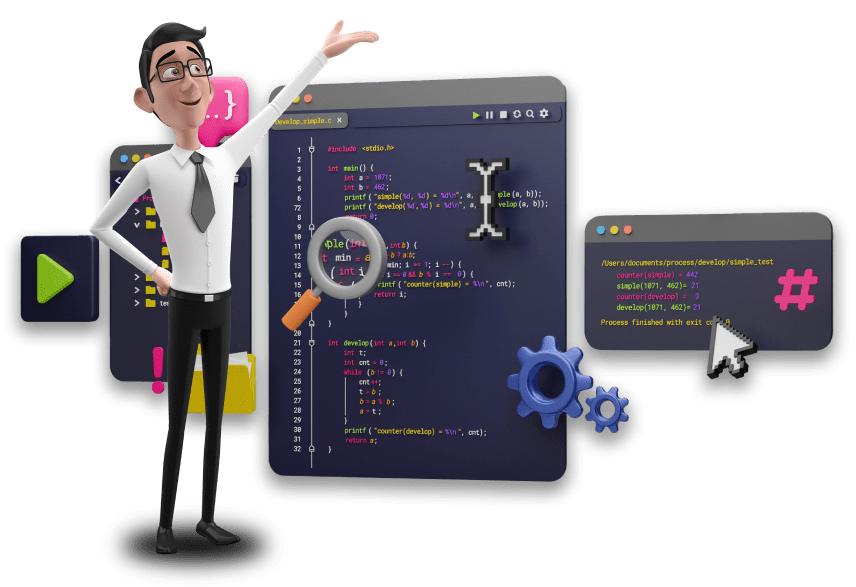
Registration will end soon!
You can test the LEM platform with your students for free for two months!
FILL IN THE FORM
to get more information
and access:
Date of the webinar
Duration
Arabia Standard Time (GMT +3)
(7:00 p.m. GST (GMT +4))
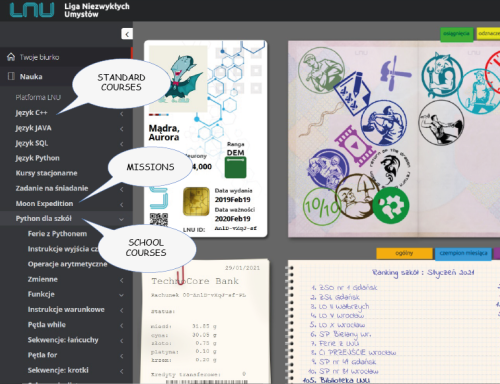
Programming courses
On the platform you will find C++, Python, SQL courses and a short introductory course to JAVA. You can use the courses when working with students at school. Standard courses will be especially useful for students interested in programming and for extracurricular activities.
An ideal solution for Computer Science lessons is a special “Python for schools” course, based on the core curriculum of this subject, in the part related to programming. This course is better suited to the abilities of the average student. SQL and C ++ school courses are also under preparation.
Learning through practice
Learning on the LNU platform is about solving programming tasks in practice, i.e. writing real source code or asking questions to real databases. The platform interface includes a development environment that allows you to edit the source code file and run the written program. Each lesson consists of an introduction on a specific issue and problem that should be solved by writing a program or – in the case of the SQL language – by asking the appropriate database query.
If your students encounter difficulties in solving the problem, they can use the hint, and if it turns out to be insufficient – also the help of a consultant via the contact form. Teachers also have access to a special tab with an example, correct solution of the task in order to be able to better prepare for work with students and be able to help them.
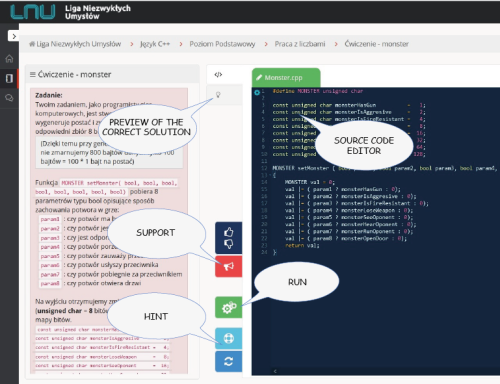
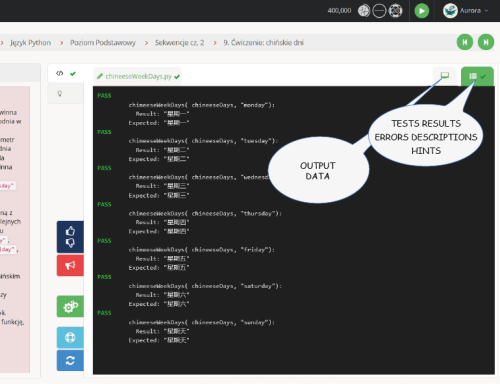
Automatic evaluation of solutions
The written and launched solution is subject to immediate, fully automatic evaluation. The results are returned in a fraction of a second and presented in the tabs with the program output data, tests, descriptions of possible errors and tips.
This allows you and your students to individually adjust the pace and duration of learning. Automatic evaluation of work will allow you to conduct classes with a large group of students very effectively, focusing on people who will have problems with solving individual tasks.
Tracking students’ work
Working with students will be facilitated by access to detailed statistics of their activity on the platform, statistics of individual lessons, and even a preview of the solutions to the tasks of each student. In the group management tab, you can flexibly add new people to the group, assign access to specific courses to individual students, and see their overall progress and current attendance.
To facilitate remote work, there is also a chat to which you can invite all group members. A group can have many administrators, so there are no obstacles for other teachers from your school to join the platform.
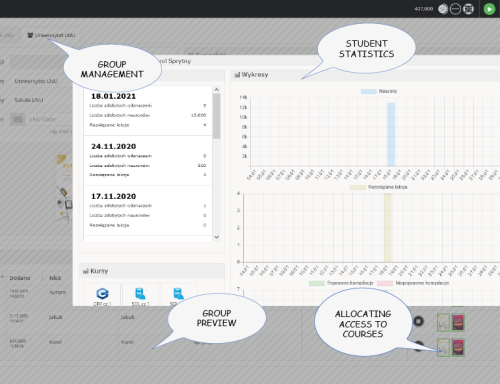
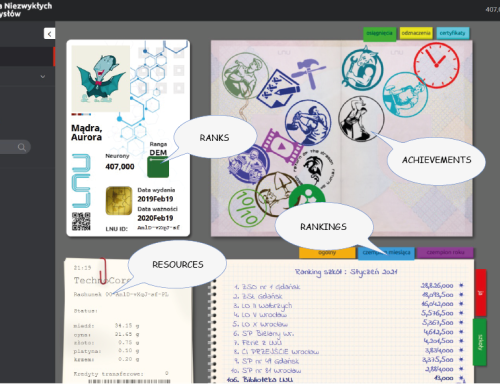
Gamification
Learning how to program can be difficult, but with LEM it’s never boring! Gamification is built into the platform from the very beginning. Together with your students, gain new ranks, achievements, medals, and resources that can be useful in some tasks. Climb the school and individual rankings by having fun and competing with other schools.
Take on challenging missions in which you need to demonstrate not only skills in various areas of computer science, but also logical thinking and a sense of humor …
Programming courses
You will become familiar with the functionalities of the LEM platform
both from the point of view of the ordinary user/student (how to learn)
as well as from the group administrator/teacher’s point of view (how to teach using the platform)
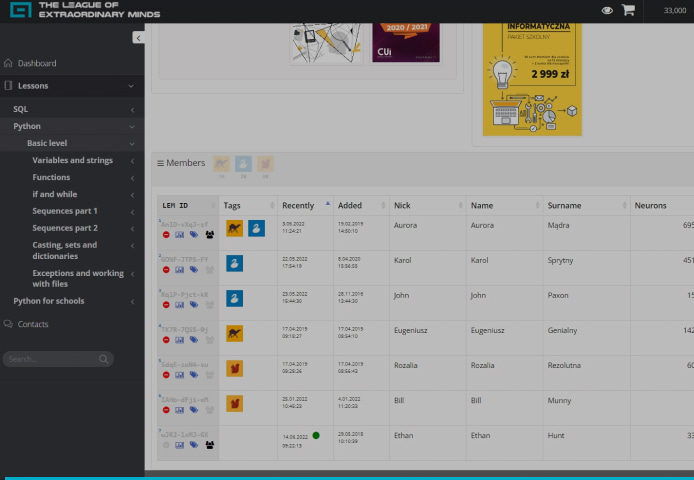
What will you gain by participating?
a free trial of the full version of the platform for teachers and students until 30 December 2022,
a platform that makes the teacher's life easier, allowing them to teach programming in a simple and effective way, focusing on students who are struggling,
an opportunity to use the platform to improve your own IT skills.
Details of the courses included in the packages
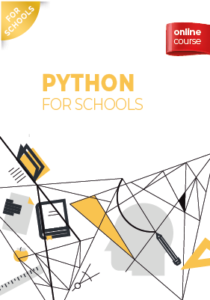 A course with Python problems on the basis of computer science in the part concerning programming and using a computer to solve problems. Course to be used during the lessons. Issues: exit statements, arithmetic operations, variables, functions, conditional statements, while loop, sequences: strings, tuples, lists; for loop, data types and their conversion.
A course with Python problems on the basis of computer science in the part concerning programming and using a computer to solve problems. Course to be used during the lessons. Issues: exit statements, arithmetic operations, variables, functions, conditional statements, while loop, sequences: strings, tuples, lists; for loop, data types and their conversion.
11 chapters / 86 lessons
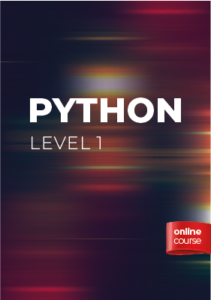 Basics of Python programming. Issues: Basic level: variables and strings, functions, if and while, sequences part 1, sequences part. 2, projection, sets, dictionaries, exceptions and working with text files.
Basics of Python programming. Issues: Basic level: variables and strings, functions, if and while, sequences part 1, sequences part. 2, projection, sets, dictionaries, exceptions and working with text files.
7 chapters / 169 lessons
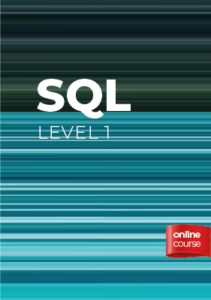 The first level of the SQL language course. Issues: introduction, SELECT search, sorting, limiting, WHERE filter clause, logical operators, arithmetic operators, aggregate functions, grouping, table modification.
The first level of the SQL language course. Issues: introduction, SELECT search, sorting, limiting, WHERE filter clause, logical operators, arithmetic operators, aggregate functions, grouping, table modification.
5 chapters / 116 lessons
Who can get trial access?
teachers
people interested in
cooperation

About LEM platform

Gold Medal 2020
Subscribe now!
Registration will end soon!
Fill in the form
FILL IN THE FORM
to get more information
and access: